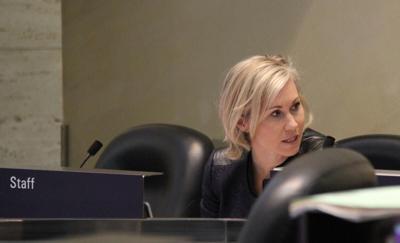This article is part of the Starãs trust initiative, where, every week, we take readers behind the scenes of our journalism. This week, we look at how Freedom-of-Information legislation can allow governments to shield information from the public.
A great many public-interest stories that have appeared in the pc28¿ìë½Star were the result of Freedom-of-Information requests made by journalists to government ministries, organizations and agencies.
Readers will often see phrases like ãaccording to documents obtained through a Freedom-of-Information request,ã or ãdocuments uncovered through access-to-information legislation reveal ...ã in stories about decisions our institutions make behind closed doors.
But what doesnãt get reported is the usually painstaking process journalists go through in an attempt to get the information. First they have to figure out exactly what to ask for. This is often followed by months-long ã or sometimes years-long ã delays and fights over the often high fees charged.
Read more:
Freedom-of-Information legislation gives members of the public who pay a $5 fee the right to ask municipal, provincial and federal governments for almost any kind information these institutions hold, with some exceptions. There are usually further fees for the time spent searching for the requests and making copies.
Requesters unhappy with the cost, the amount of time the request is taking, or the responsiveness of the government, can appeal to provincial and federal information and privacy commissioners for assistance. But this process can add months to an already slow process.
Journalists who use the system regularly have been complaining for years that the Freedom-of-Information system is broken, but little has been done by governments that has made it more accessible.
The recent travails of city hall reporter Jennifer Pagliaro, during her quest to uncover information from the City of pc28¿ìë½about the controversial Scarborough subway extensions, show the lengths the media, as representatives of the public, have to go through to get information that is the property of the public.
In mid-2015, Pagliaro requested emails, memos, and other documents from the time council voted to scrap a light-rail line fully funded by the province to when council made the decision to build a subway instead.
ãItãs so hard to get at the truth with issues like the Scarborough subway. There is so little evidence to justify building it and also a lot of misinformation. That makes it difficult to know if politicians are spending our money wisely,ã Pagliaro said. ãAre they doing it based on the facts or because of political motivations? Freedom of information laws are one of the ways we try to shed light on issues like a controversial subway project.ã
City staff told Pagliaro that her request would cover thousands of emails and asked her to consider narrowing the requested search, which was for ãScarborough subwayã and ãScarborough LRT.ã She did not change her request. A month later, the city told Pagliaro its estimated fee for the information was $1,755, and that it needed a nine-month extension because staff whose records she had requested were too busy. (At the City of Toronto, staff whose records are requested must do their own searches, as opposed to Freedom-of-Information co-ordinators who do this at other government institutions.)
Pagliaro paid the $877.50 deposit (50 per cent of total fee estimate, as is required by law) but at the same time appealed the fee and the delay to the Information and Privacy Commissioner of Ontario.
During the appeal process, the city lowered its fee estimate to $1,485 but requested an additional year to fulfil the request.
After nearly a year of back-and-forth discussions with the commissionerãs office and waiting for a resolution, the commissioner ruled the city could have four more months to respond to Pagliaroãs request and that the fee estimate was reasonable.
Despite that ruling, however, the final batch of records was delivered to Pagliaro two weeks late. In all, it took nearly two years to get all of the records requested.
Among the revelations contained in the records: Prior to councilãs July 2013 vote to approve the multibillion-dollar Scarborough subway, former city planner Jennifer Keesmaat tried but failed to convince her colleagues behind-the-scenes that the fully-funded seven-stop light-rail line was still the best plan.
ãIt concerns me that a system purporting to be designed to allow access to public information was set up to be incredibly onerous on the person seeking that information,ã Pagliaro said. ãThe result is often legislated secrecy.ã
The Starãs managing editor Irene Gentle adds the issue is bad enough for members of the press, ãBut this system is meant for everyone. The government is asking citizens not used to the system to try to navigate it with months or years of delays, mounting costs and appeals. The cost is public information remaining secret. Thatãs a dangerous thing.ã

























